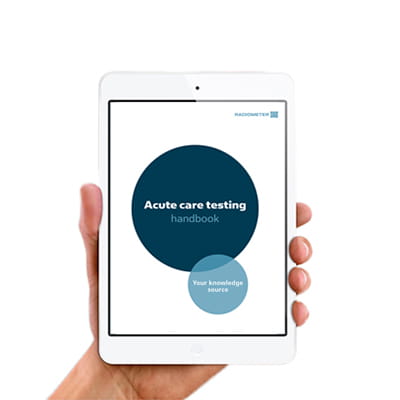Printed from acutecaretesting.org
January 2015
A review of electrolyte disorders in diabetes
Summarized from Liamis G, Liberopoulos E, Barkas F, M Elisaf. Diabetes mellitus and electrolyte disorders. World J Clin Cases 2014; 2,10: 488-96.
Discussion of electrolyte disorders associated with diabetes is most usually confined to the abnormality of plasma/serum sodium and potassium concentrations that occur in the two acute, life-threatening, conditions of decompensated diabetes: diabetic ketoacidosis (DKA) and hyperosmolar non-ketotic coma (HNKC).
As a recently published review article makes clear this is only a partial view; disturbance of electrolytes is a common feature of diabetes, not necessarily associated with DKA or HNKC nor confined to disturbance of sodium and potassium.
The authors provide an overview of current understanding regarding the mechanisms that can give rise to electrolyte disorders in diabetes under seven headings: the dysnatremias (hyponatremia and hypernatremia); hypokalemia; hyperkalemia; hypomagnesia; hypocalcemia; hypercalcemia and hypophosphatemia.
Topics addressed under the dysnatremia heading include: dilutional hyponatremia caused by hyperglycemia due to shift of water from cells to ECF (an osmotic effect of glucose); hypernatremia caused by insufficient water replacement following hypotonic renal loss due to hyperglycemia induced osmotic diuresis; and drug-induced hyponatremia caused by some hypoglycemicgg agents.
The authors identify and discuss three well-documented mechanisms for hypokalemia in diabetes: shift of potassium from cells to plasma (ECF) due to administration of insulin; gastrointestinal loss of potassium (due to diabetic induced motility disorders) and renal loss of potassium during osmotic diuresis resulting from hyperglycemia. Reduced plasma magnesium (hypomagnesia) is apparently very common in elderly diabetic patients.
The authors cite recent study that suggests diabetes is an independent risk factor (OR = 3.32) for hypomagnesia in this age group. This is just one of many lesser-known aspects of electrolyte disorder in diabetes that are discussed in this wide-ranging, admirably concise up-to-date review article which is supported by 90 references.
May contain information that is not supported by performance and intended use claims of Radiometer's products. See also Legal info.
Acute care testing handbook
Get the acute care testing handbook
Your practical guide to critical parameters in acute care testing.
Download nowScientific webinars
Check out the list of webinars
Radiometer and acutecaretesting.org present free educational webinars on topics surrounding acute care testing presented by international experts.
Go to webinars







